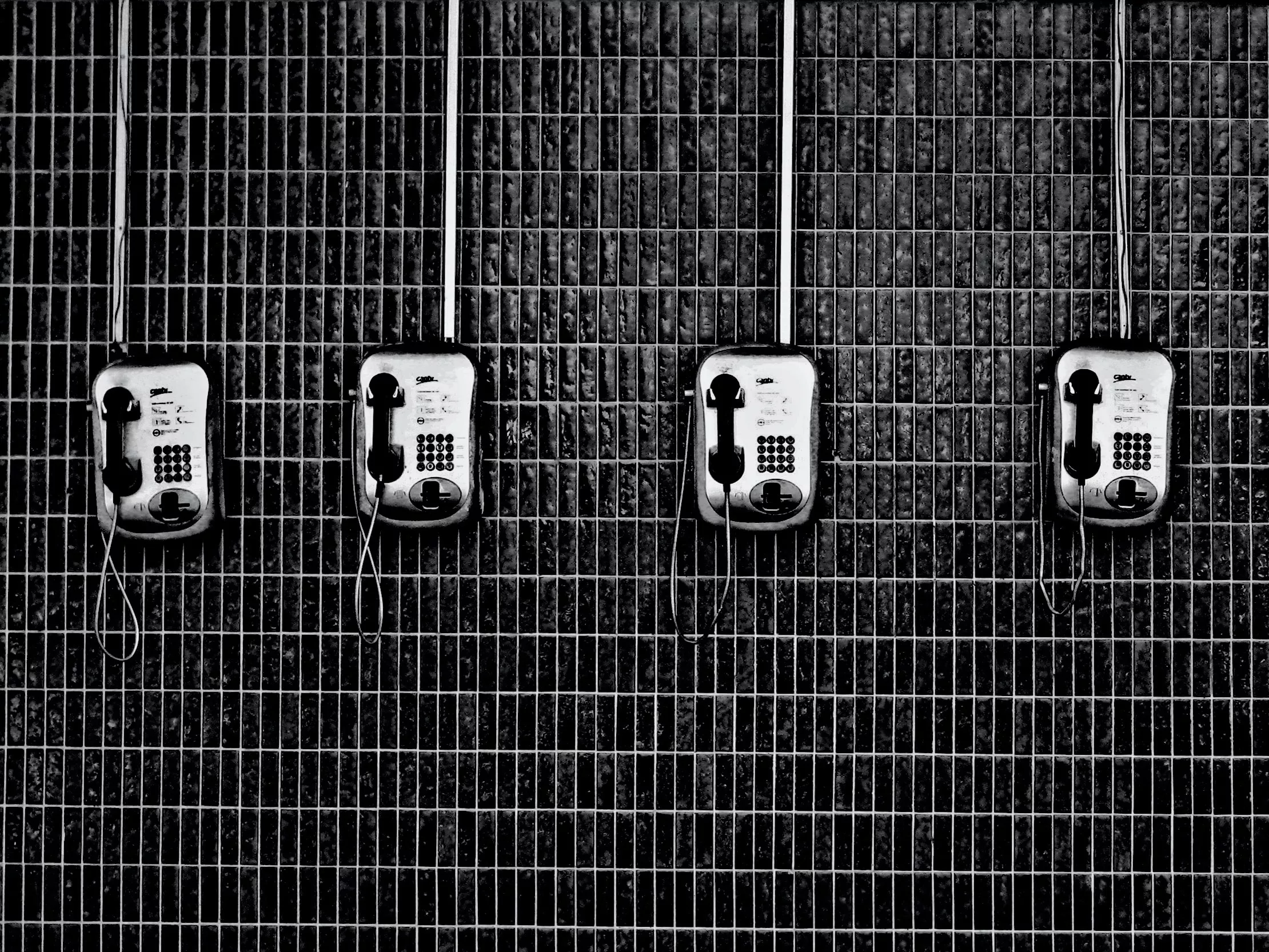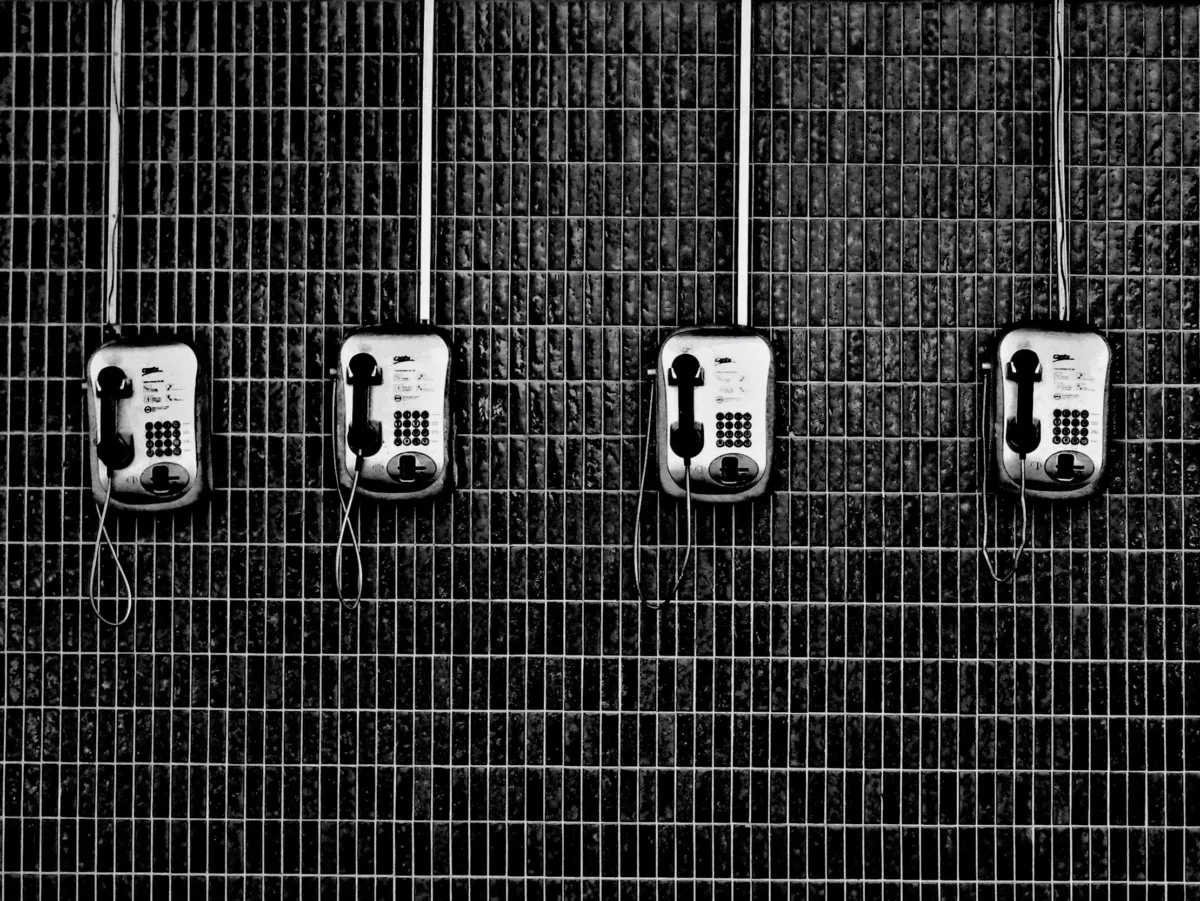Newsletter
I Couldn’t Afford to Call My Mother Before She Died. Georgia Forbids Imprisoned People from Working.
JShawn Guess recounts how being unable to earn money while in prison led to him missing out on his final moments with his mom.


I Couldn’t Afford to Call My Mother Before She Died. Georgia Forbids Imprisoned People from Working.
By JShawn Guess
It was October of 2008, the 17th year of a prison sentence my lawyer had assured me wouldn’t exceed 12, when the time ran out on the first of my two weekly calls to my mother and the collect-call-only phone hung up. Mom expected my second call to immediately follow the first, so we followed our routine of ignoring the warnings and allowed the computer to abruptly cut us off mid-sentence. We’d normally just pick back up once we reconnected. Only this time, when I redialed my mom’s number, all I heard was the automated voice tell me I needed more phone credits on my account.
I was worried; paying for another call wasn’t so simple. Cash was tight. The Georgia prison system forbids paying prisoners for labor, so earning an income means mastering the art of begging or getting involved in any number of criminal endeavors. Even operating a store out of your cell—common in most prisons—is a violation of the rules. But I had been doing so for a couple of years and trading my profits for phone time cards from the commissary. But I was short this week. I’d thought I could make one more call but I was wrong.
There had been plenty of money when I first came to prison. I had set a yearly budget for myself at just a couple of grand. I had a plan to progressively sell certain properties to cover taxes on the rest, and knew what could be cut out of that plan in case of emergencies, of which life provides an endless supply.
But the five additional, unforeseen years in prison had eroded my estate to the point where I could no longer just call dear ol’ mom for the weekly, “I’m fine how are you?”
With no other way to finish that day’s conversation, I went to my cell, drew out my writing tablet, sat at my tiny desk to pen my mom a letter. I sometimes did so for the special days in our family. Thinking of where to start, I searched my mind for what she had been saying when we were cut off. Then I remember the words,
“Son, I need you…”
Need me for what, Mom? Was there a question to come or a relative that needed to be written? Did her car need repairs, or was there just something for me to think about?
Even now, with the last of my money sitting in savings awaiting my release, if it was money she needed, it could be had. Friends of mine that were loyal to me and my family did odd jobs for her and kept up her home. In one way or another, I could resolve almost anything mom needed. If I only knew.
I sent that letter, but it went unanswered. I’d purchased more phone minutes the next day but got no response when I rang mom’s number. Nor the next day when I tried again. Nor for the next 10 days, which is the usual time it took for any of her written replies to reach me.
I was waiting for the phones to be turned on when a guard motioned me over to the control room. Speaking through the metal grill in the glass, he told me, “The chaplain wants to see you.”
That’s rarely a good thing in prison. As I’m in my cell pulling on a clean shirt ahead of our conversation, my mind scrambled for any alternative reason for the summons. Perhaps chap is starting another lifers group and is looking for an aide. Or he needs help distributing a load of donated books in the library.
But every alternate option evaporated when I entered the chaplain’s office.
“Your mother is dead,” he bluntly stated.
I took a deep breath.
“Yeah I figured as much,” I replied. “Do you know any of ‘how, when, why’?”
“Got a phone call just an hour ago, and a number you can call.” He handed me a slip of paper. I couldn’t read through the tears in my eyes, which I fought to shed due to how I was raised. And because this is prison, even in a chaplain’s office.
I hadn’t brought a handkerchief as an act of denial. Seeing my need, chap left one beside the phone he pushed across the desk as he stepped away to give me a few minutes of privacy.
The number connected me to mom’s next door neighbor, a Mrs. Gould, who had called my mother on the same evening I had last spoken to her. The phone stayed busy, so she went to check on her and found mom suffering from a stroke. The phone receiver laid on the floor of the kitchen, near where she sat slumped on the table.
There had apparently been ambulances, hospitals, rabbis, and even a funeral—which occurred three days before the news of mom’s passing reached me. Mrs. Gould had only just found my letter in the mailbox, having not thought to check earlier given all that was going on. It had taken her all day to get a number and catch the chaplain in his office so he could let me know how sorry everyone was and how much mom would be missed in the neighborhood.
On the phone, Mrs. Gould also tried to console me.
“Be assured Mr. Guess,” she said, “ in the end your mother needed for nothing.”
“Except for me,” I said. I hung up the phone, and wept.
ICYMI — from The Appeal
In an essay published in partnership with the Prison Journalism Project, Wyatt Stayner writes about a New York bill that would grant release opportunities to sick and elderly prisoners, who pose virtually no public safety risk.
Since 1996, the Prison Litigation Reform Act has imposed strict limits on prisoners’ lawsuits and the type of relief they can seek in civil rights cases. The law has enabled prison officials to operate with impunity because they rarely face consequences, reports C. Dreams.
Members of Congress are calling on the leading federal mental health research agency to study post-traumatic prison disorder, a condition potentially impacting millions of people who have been incarcerated, writes Elizabeth Weill-Greenberg.
In the news
Jordan Neely, a 30-year-old Black man experiencing homelessness, told a subway car full of people he was hungry and thirsty. Daniel Penny, a white ex-Marine, responded by choking him to death. The NYPD did not arrest Penny and withheld his name from the public. [Christine Fernando Jeanine Santucci / USA Today]
Penny is not the only one responsible for Neely’s death. This is what happens when politicians demonize unhoused people while simultaneously gutting supportive services. New York City Mayor Eric Adams cleared homeless encampments, ordered officers to kick unhoused people off trains, and cut $615 million from the city’s Department of Homeless Services. [Akela Lacy / The Intercept]
“Our media is fueling vigilantism against homeless people,” writes Adam Johnson, noting that the killing of Neely and the former San Francisco Fire Department Commissioner’s violent attacks on local unhoused people come amid a toxic and sensationalist media climate that dehumanizes those who are homeless. [Adam Johnson / The Column]
The Florida legislature passed a bill that criminalizes trans people for using the bathroom in accordance with their gender identity in public buildings, schools, and correctional facilities. [Chris Geidner / Law Dork]
Because Florida law prevented her from getting an abortion in her state, Deborah Dobert was forced to carry to term a baby with no kidneys. Her son, Milo, died in her arms shortly after he was born. [Elizabeth Cohen, Carma Hassan and Amanda Musa / CNN]
As protests continue against Cop City, Atlanta’s proposed $90 million police training facility, Scalawag launched a multimedia project to provide context, analysis, and firsthand perspectives that challenge dominant narratives about a movement that has claimed international attention. [Week of Writing / Scalawag]
That’s all for this week. As always, feel free to leave us some feedback, and if you want to invest in the future of The Appeal, donate here.
